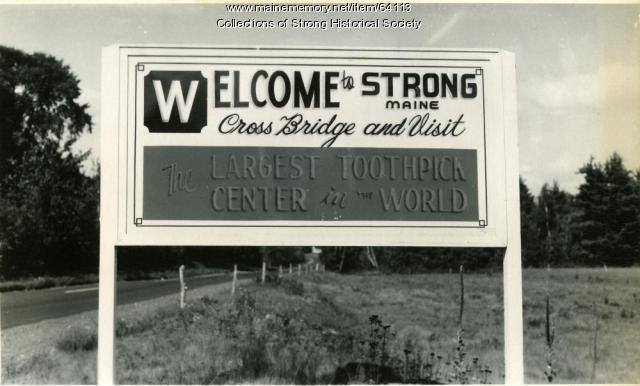Keywords: Cook Book
Item 16291
Prison Store and Book Store, Houlton, ca. 1895
Contributed by: Aroostook County Historical and Art Museum Date: circa 1895 Location: Houlton Media: Photographic print
Item 104297
Various dessert recipes, ca. 1890
Contributed by: Maine Historical Society Date: circa 1890 Media: Ink on paper
Item 88186
Cook property, N. Side Island Avenue, Long Island, Portland, 1924
Owner in 1924: Marianna Cook Use: Summer Dwelling
Item 85905
Cook property, E. side Island Avenue, Peaks Island, Portland, 1924
Owner in 1924: Abbie G. Cook Use: Summer Dwelling
Exhibit
Sugar and Spice: Our Vintage Recipes
Sugar and Spice: Our Vintage Recipes showcases historic recipes, dating from the 18th century to the 1950s, like sweet treats, traditional favorites, promotional printings, medicinal concoctions, curious libations, and recipes that have fallen out of favor.
Exhibit
Maine's Untold Vegetarian History
Vegetarianism has deep roots in Maine and this first-of-its-kind exhibition explores this untold story.
Site Page
Strong, a Mussul Unsquit village - Resources
"Cole, and Charles G. Waugh, Down East Books, 1996 It Happened in Maine, Gail Underwood Parker, Morris Book Publishing, 2004 Maine, edited by Richard…"
Site Page
Strong, a Mussul Unsquit village - About Us - Page 3 of 3
"About Us Century-old Books Discovered In a Cardboard Box X Strong Elementary School Librarian Jami Badershall was cleaning the back room of…"
Story
Apple Time - a visit to the ancestral farm
by Randy Randall
Memories from childhood of visiting the family homestead in Limington during apple picking time.
Story
History of Forest Gardens
by Gary Libby
This is a history of one of Portland's oldest local bars
Lesson Plan
Wabanaki Studies: Stewarding Natural Resources
Grade Level: 3-5
Content Area: Science & Engineering, Social Studies
This lesson plan will introduce elementary-grade students to the concepts and importance of Traditional Ecological Knowledge (TEK) and Indigenous Knowledge (IK), taught and understood through oral history to generations of Wabanaki people. Students will engage in discussions about how humans can be stewards of the local ecosystem, and how non-Native Maine citizens can listen to, learn from, and amplify the voices of Wabanaki neighbors to assist in the future of a sustainable environment. Students will learn about Wabanaki artists, teachers, and leaders from the past and present to help contextualize the concepts and ideas in this lesson, and learn about how Wabanaki youth are carrying tradition forward into the future.
















